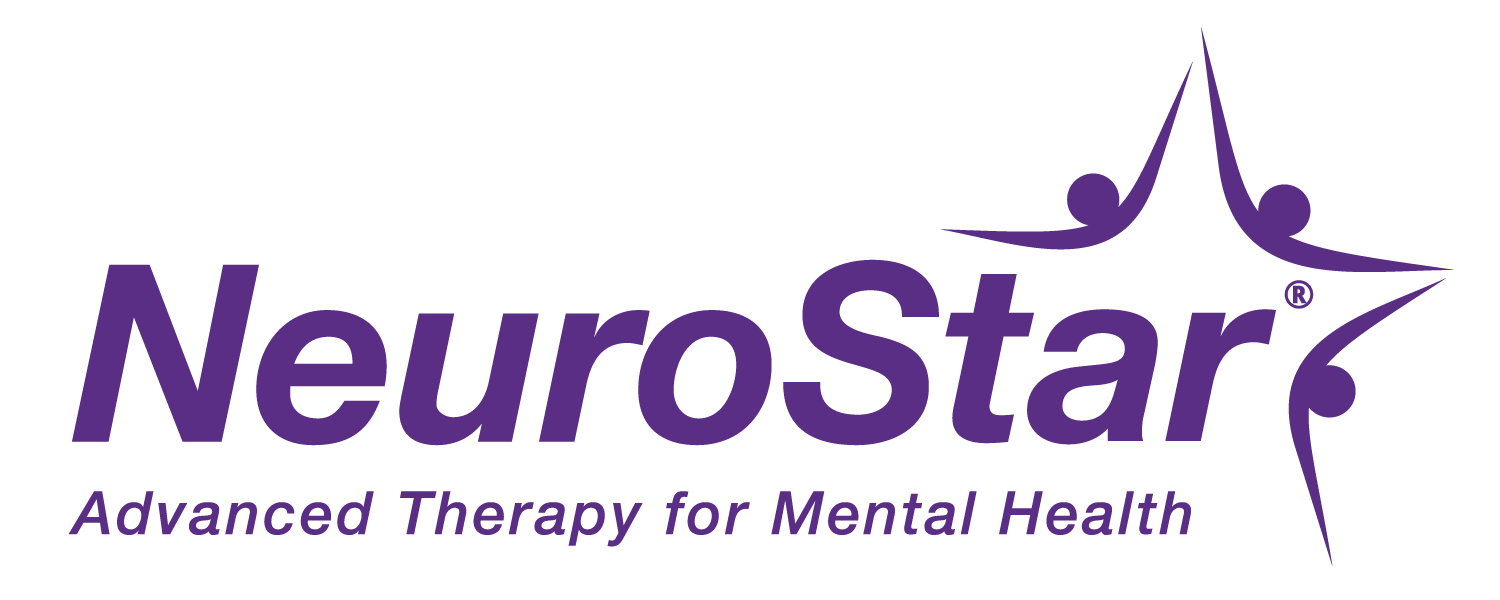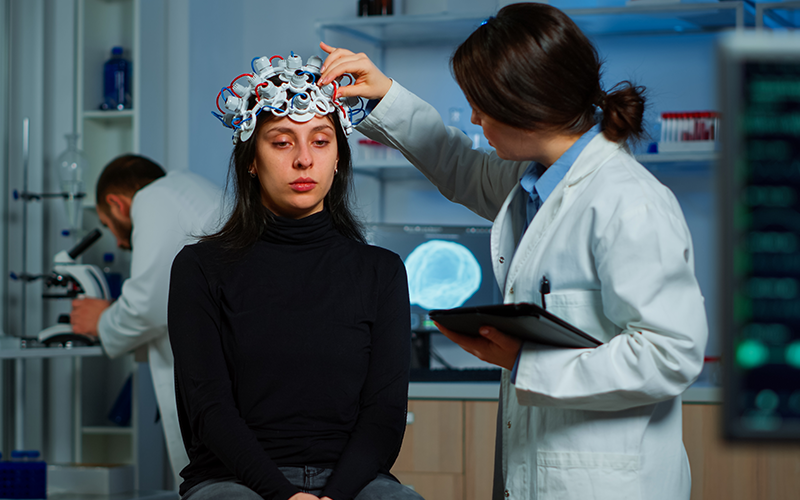Are you new to the term Transcranial Magnetic Stimulation (TMS) and want to know how TMS therapy can improve depression symptoms? Well, you have come to the right place. Here, we have assembled a complete guide to TMS Therapy for you, while highlighting the benefits of TMS for depression treatment.
Let’s start by understanding what exactly TMS Therapy is. Typically TMS therapy is recommended for patients suffering from treatment resistant depression. This means the patient has tried multiple antidepressants with little luck in symptom improvement. Now, TMS therapy for depression includes transmitting electromagnetic waves into a patient’s prefrontal cortex, which is the region of the brain that affects mood regulation. TMS, or recurrent TMS, refers to the practice of transmitting these brief waves at regular intervals.
Mostly, TMS therapy is combined with antidepressants or other kinds of psychological treatments like psychotherapy to ensure that the patients are given a comprehensive care plan for better health outcomes altogether.
TMS Therapy is a non-drug alternative to medication that most insurances cover. Now, the big question you may be asking; how does this whole thing work?
How Does TMS Therapy Work?
When it comes to treating depression, antidepressants are not the end-all be-all. Though some patients may notice symptom improvement with the use of medications, it is not always effective. TMS therapy comes in when depression is treatment resistant or for those seeking an option besides medication. It is considered a good alternative therapy for treating patients with Major Depressive Disorder.
TMS therapy works by specifically targeting certain areas of the brain. Electromagnetic pulses stimulate the brain’s mood regulation centers. This stimulation can alleviate depression symptoms by “exercising” the nerve cells in that area of the brain.
TMS therapy usually lasts six to seven weeks, with at 5 sessions per week. Each session is usually around just under 20 minutes. Minor aches and pains such as a headache may occur, but they are usually transient. Approximately 60% of those who try TMS report measurable improvements. There is always the chance of relapse a few years or months later with any good depression therapy. TMS therapy is frequently as effective the second time as it was the first time around.
Is TMS Therapy right for you?
TMS is a safe, effective treatment that can provide hope to people who suffer from depression, but it is not for everyone. TMS therapy is not recommended if you have a heart pacemaker, spinal or bladder stimulators, metal plates in your head, previous episodes of epileptic seizures, or aneurysm clips.
You should be aware of the risks associated with these conditions and then decide whether going for TMS therapy is right for you or not. TMS therapy for depression is likely to be beneficial for:
- Patients who have not benefited from antidepressant medications previously.
- Patients who don’t want the traditional side effects of antidepressants.
- Patients who want a safe therapy that is effective and can be conducted in the doctor’s office under supervision.
Do you also want to know how effective TMS therapy is? Continue reading to know all about the procedure.
Effectiveness TMS Therapy for Depression
There is a mixed pool of evidence available on gauging the effectiveness of TMS therapy for depression. But, it is a fact that everyone reacts differently to the treatment. Research has found out that only around a third to a half of the total persons have symptom relief after TMS treatment. Others may find that antidepressant medications, psychotherapy, and lifestyle modifications (such as nutrition and exercise) provide extra help once their mood improves.
With the frequent use of antidepressants, patients tend to observe little changes but they do not get complete relief from their symptoms. This is where TMS Therapy for Depression works wonders.
Due to the adverse side effects of antidepressants, there is a pressing need for alternative therapies and this is why more and more unique therapies are coming into existence to fully cater to the needs of the patients as well.
In a study conducted by Harvard Medical School Publishing, it was found that approximately 60-70% of the patients suffering from depression reported improvement in their overall state of mind due to TMS Therapy. It is noteworthy that nearly half of the people who received TMS Therapy for depression recovered completely. Despite all these findings, there is still a chance of symptom remission in the long term that cannot be avoided unfortunately.
Recurrence of symptoms, according to Harvard Medical School, is common and connected with various treatments for many such mental health conditions, such as medications and psychotherapies of different kinds. Many TMS patients, on the other hand, report decreased symptoms or elimination for months after finishing therapy, with an average symptoms-free time of little more than a year.
TMS therapy has the potential to be an effective treatment for depression, as well as a more common and useful treatment option for additional mental health conditions and psychological conditions in the future. While more research is required to improve and optimize the utilization of TMS therapy for moderate to severe depression and other mental diseases, there is no reason to dispute TMS treatment’s efficacy.
TMS Therapy for depression is an ideal alternative to the antidepressant rigor which has been prescribed for mental health conditions like depression or other psychological distresses for ages now. It is time that the patients are given the choice to come out of their state of depression by using this unique TMS treatment.
Benefits of TMS Therapy for Depression
To find out how TMS Therapy satisfies the patients with depression, here we have jotted down some basic benefits of TMS Therapy:
- TMS Therapy is a much safer approach to tackling depression as compared to the antidepressants that are prescribed to the patients. Antidepressants come with their share of side effects that we can avoid with TMS Therapy. TMS Therapy requires no sedation nor is any kind of pain is inflicted upon the patient during the procedure.
- TMS Therapy could eliminate the need for any sort of medication to treat depression in the long run. TMS Therapy combined with psychotherapy, is a wholesome and comprehensive treatment plan prescribed for depression patients.
Conclusion
If you’re tired of depression impacting your life, you should consider trying TMS Therapy for Depression.
This unique therapy may be a great solution if you have also tried all the antidepressants to treat your depressive symptoms, but you haven’t seen much improvement.
TMS is indeed a safe and effective treatment that can provide hope to people who suffer from depression. With the help of magnetic stimulations in the brain, TMS Therapy can help patients recover from depression in no time.
In this guide we have highlighted all the main aspects of TMS Therapy, how it works, and how it can potentially satisfy the patients with depression. If you have any further queries, feel free to contact us and do leave your feedback in the comments section below.


